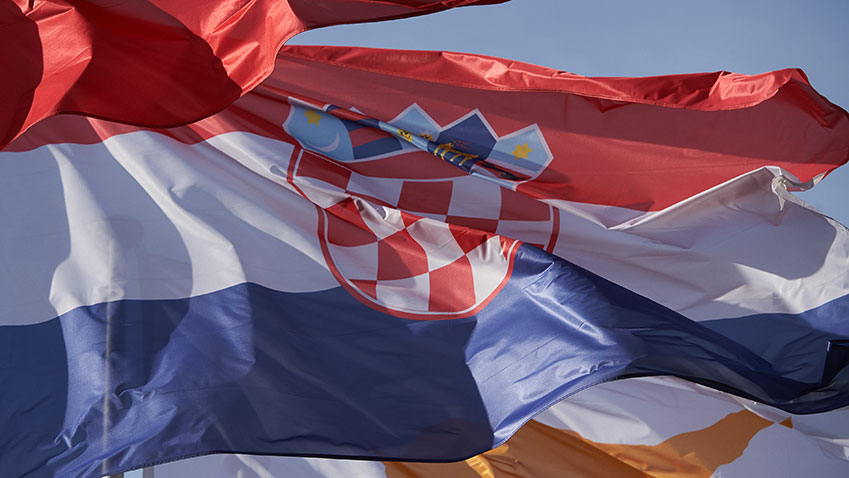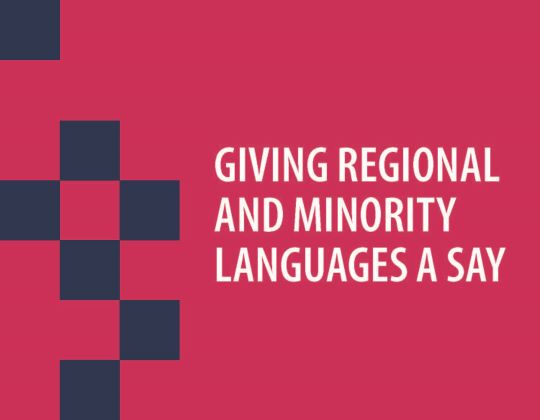Strasbourg, 27.05.2024 – A report published today by the Committee of Experts for the European Charter for Regional or Minority Languages praises Croatia for continued protection and promotion of minority languages for national minorities, and enabling their use in fields such as education, judicial authorities, administration, media or cultural life, but it also stresses that much more needs to be done to broaden their use.
The Charter, which entered into force in Croatia in 1998, covers to varying degrees minority languages including Czech, Hungarian, Italian, Ruthenian, Serbian, Slovak and Ukrainian as well as Boyash Romanian, German, Istro-Romanian and Slovenian.
All minority languages, excepting Istro-Romanian, are present in education in accordance with one of the three applicable models: education in the minority language, bilingual education, or teaching the minority language together with its related history and culture. However, some minority languages still lack continuity between various levels of education. It is important that in practice teaching the minority language together with the related history and culture, which is often the most widespread model, takes place for a sufficient number of hours. The recent introduction of teaching Boyash Romanian is a “commendable development” according to the report, which should be further strengthened. But the Croatian authorities should take “resolute steps” to provide for the teaching and promotion of Istro-Romanian, which the report categorises as “severely endangered”.
With exceptions for Italian, minority languages are present only to a limited extent in public administration. The one-third threshold requirement for their equal and official use is too high, the experts say. The report also stresses that “voluntary introduction” of minority language use by local and regional authorities is not sufficiently promoted and applied. Furthermore, even when the one-third threshold is met, no guarantee exists for the practical application of equal and official use of minority languages. For place name signs, the report points out that municipalities rarely use the Cyrillic script for Serbian. The report calls on the Croatian authorities to ensure implementation of the Charter in all areas where minority language speakers are traditionally present in sufficient numbers, irrespective of thresholds and to facilitate the use of minority languages in practice.
The use of minority languages in public broadcasting is also wanting. While certain branches of the public broadcaster and local or regional radio stations ensure a certain minority language presence, this is not the case for television.
The report includes the following list of “priority” recommendations transmitted to the Committee of Ministers:
Take resolute steps to promote awareness and tolerance vis-à-vis the minority languages and the cultures they represent as an integral part of the cultural heritage of Croatia, both in the general curriculum at all stages of education and in the media, as well as by increasing their visibility in the public space.
Take necessary measures to introduce minority languages in equal and official use, irrespective of the threshold and ensure that each minority language covered by the Charter is in equal and official use in at least one local self-government unit.
Ensure the use of minority languages in practice at the level of the local branches of state authorities, and of county and local authorities.
Extend the use of minority languages in education to ensure continuity from pre-school to secondary education for each language.
Provide for each minority language public radio and television programmes with a sufficient duration, regularity and frequency.
The seventh evaluation report of the Committee of Experts of the European Charter for Regional or Minority Languages is based on the information provided by governmental and non-governmental sources, including that obtained during its visit to Croatia in October 2023. It reflects the situation of the minority languages prevailing at the time of the visit.
The evaluation report has been published together with the Croatian authorities’ comments. A summary of the report is available in Croatian.





